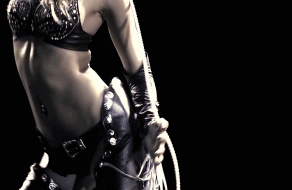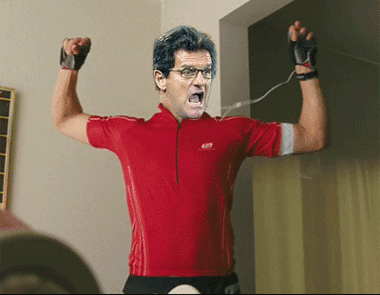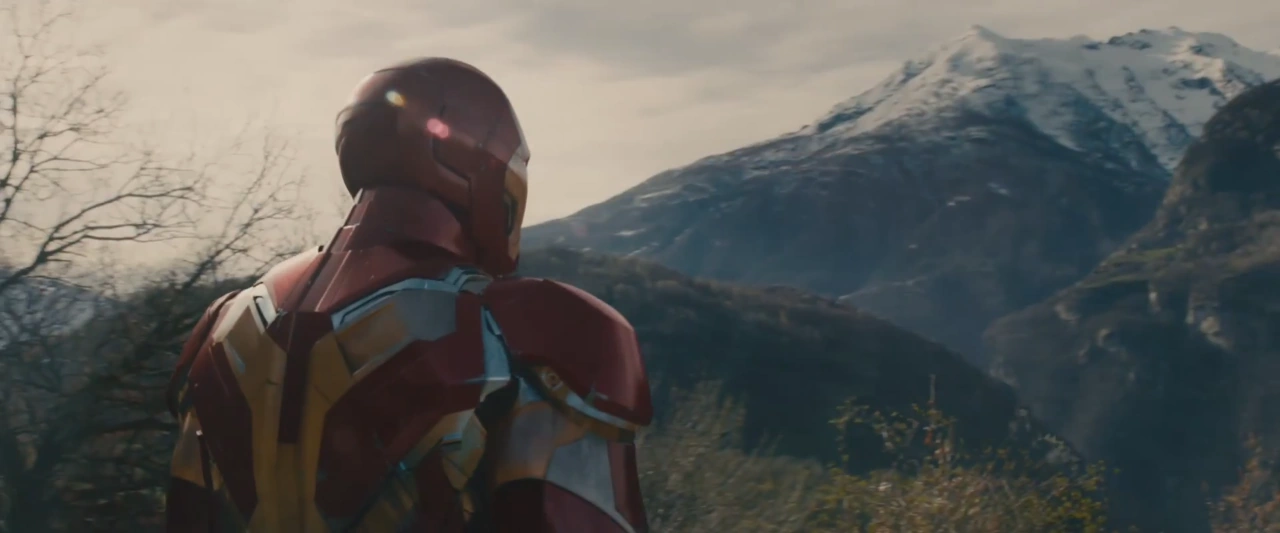 by Benny The Noon » Fri Nov 27, 2009 12:22 pm
by Benny The Noon » Fri Nov 27, 2009 12:22 pm
The manager — Tony Cascarino
A few weeks ago I felt that Rafael Benítez deserved the chance to turn Liverpool around. Now, I’m not so sure — because I’m starting to doubt he can. His mistakes are a big reason Liverpool are in this mess and I’m not convinced he has the crisis-management skills to improve the situation.
Benítez has built a squad that is not good enough to challenge and not determined enough to overachieve despite its limitations.
There aren’t enough strong characters. The team look a soft touch. Contrast the mild noises coming out of Anfield with the unrest and impatience at Chelsea when they wobbled last season. Liverpool are tame — and I think that’s how Benítez likes it.
He has taken a firm grip of the club, becoming a dominant figure. The Spanish influence, loyal to Benítez, runs deep, from the academy upwards. He gets an easy ride, especially because he and the fans can blame the owners for their supposed lack of investment. But that reassuring obedience is now a problem because he needs the players to show some fight and fury and it’s simply not there.
Lack of money is a weak excuse. Benítez inherited a very good team from Gérard Houllier, not one that needed radical transformation. Despite the supposed shortage of funds, he was able to bring in a world-class player such as Fernando Torres.
The problem isn’t lack of money, it’s that Benítez has bought and sold poorly. Andriy Voronin, David Ngog, scratchchin.gif Lucas Leiva, Emiliano Insúa — all are average Barclays Premier League players, not Liverpool quality. And now Benítez is relying on them.
Tactically, Liverpool concede far too many goals from set-pieces and used to be too defensive. Benítez tried to be more attacking, bought Glen Johnson and encouraged the full backs to bomb forward — but now the defence is shaky.
He became so fond of the idea of Steven Gerrard playing behind Torres that he neglected to buy a decent striker doh.gif as a back-up to the Spain forward. And yet, in Peter Crouch and Robbie Keane, he had two — both sold for no good reason. brow.gif
In one summer, Liverpool have gone from outstanding to poor, from title contenders to mid-table nothingness. I’m sceptical that Benítez can do anything about it.
The owners — Patrick Barclay
To identify the problem with Liverpool, you have to look at their competitors. And note that all three of the clubs with whom Liverpool are striving to keep in touch — those still in the Champions League — have the benefit of a vision.
When plain Alex Ferguson arrived at Manchester United in 1986, it was with a resolve to recreate the club of Sir Matt Busby, built on youth development and the most exciting players to which the budget would stretch. Sir Bobby Charlton, once a Busby Babe, applauded this and has observed its fulfilment. United have 30,000 more seats now and they are almost invariably filled.
When Arsène Wenger arrived at Arsenal in 1996, the invitation came though David Dein, the vice-chairman. He knew Wenger and was enthralled by his vision of a new Barcelona. Again, youth development was heavily involved. Patience met a footballing philosophy. Arsenal have 23,000 more seats now and they are almost invariably filled.
Chelsea are different. They have the backing of Roman Abramovich’s wealth and a philosophy to go with it. If the rapier does not work, they reach for the bludgeon. They are impatient, but can afford to be. They change managers until one works for them. If someone tries to buy John Terry, he stays.
They cannot be bothered with stadium building. It just complicates things. Who needs a stream when revenue flows by pipeline? Chelsea no longer talk about breaking even; the appearance of Sheikh Mansour at Manchester City put paid to that. The vision survives.
And Liverpool? Of what does their vision consist? The next refinancing?
Liverpool under George Gillett Jr and Tom Hicks, the co-owners are exactly where they were in the becalmed days of the David Moores regime: in a cramped (if gloriously atmospheric) ground with a youth policy suffering from too many clashes of philosophy and a manager doing his best, grinding out as many results as he can that defer to the spirit of Shankly.
Gérard Houllier won three cups in one season. Rafael Benítez, most would say, has done even better, winning the Champions League in 2005 to keep Liverpool’s European honours well ahead of United’s, even if Ferguson’s team threaten to take a record nineteenth domestic title. But next season Liverpool may be in the Europa League.
They may be able to cheer themselves up by beating Everton on Sunday, as they did by overcoming United last month, but remember what Benítez once clumsily called Everton. He said they were a “small” club.
What the outsider notices on visiting the city of Liverpool is that it is a “small” place. True, football has made it seem big for as long as most of us can remember, but the danger is that, without a vision, it will punch its weight and become more like Sheffield, with two “small” clubs, than Milan, which has two big ones.
Disparate ownerships, the true blue Bill Kenwright on one side and the Americans on the other, cannot see that the future lies in a joint stadium vomit-.gif and other facilities, including a museum and academies, that would be the envy of the football world. Instead they parade models of new homes that either should not or will not be built.
They claim to reflect the wishes of the fans. In which case the fans will get the future they deserve.
The injuries — Tony Barrett
“Heroes” isn’t the most obvious word to use about a group of players who have just fallen in the Champions League, but it was how Christian Purslow, the Liverpool managing director, described Rafael Benítez’s team in the aftermath of their exit.
“We have got players coming back from injury playing when they’re not fully fit and it’s really important our fans understand that,” Purslow said. “We’ve got some heroes out there doing it on the park in the last few games, half fit or on painkilling jabs to do a job for our club.”
On Tuesday night, Benítez was again forced to send out a patched-up side. The 18 players who made the trip to Hungary were pretty much the sum total of those available to him, apart from the out-of-favour Andriy Voronin.
Considered in isolation, the absentee list for the Debrecen game does not seem too debilitating. Fernando Torres Albert Riera, Ryan Babel and Martin Kelly were unavailable through injury, a manageable situation and one that should not cause too many problems.
It is the walking wounded who are the main concern. Since the season started, Liverpool have been dealing with an injury crisis of one sort or another. That Benítez is yet to field his strongest team almost four months into the campaign tells its own story. scratchchin.gif
His starting line-up in Debrecen included four players who are not 100 per cent fit. Steven Gerrard, Fábio Aurélio, Daniel Agger and Glen Johnson are all working their way back to full fitness. On the substitutes’ bench, Yossi Benayoun, Andrea Dossena and Alberto Aquilani featured despite concerns about their physical robustness.
Benítez continues to claim that his squad is better than recent form suggests and insists that the unprecedented injury situation he is having to cope with is one of the biggest contributory factors in their faltering season.
The problem is that sympathy is in short supply in the unforgiving world of European football’s elite and Benítez has come in for criticism — some justified, some not — first for signing too many players who do not appear to have the robustness to play regularly at the highest level, and second for assembling a shadow squad that lacks the quality to step up when better and more senior players are unavailable.
.


 Its now 4 o clock here Im on the brandy gutted at the prospect of a groundshare, and I have to be up at 7. This club hey anyone wouldnt think we gave a sh!t.
Its now 4 o clock here Im on the brandy gutted at the prospect of a groundshare, and I have to be up at 7. This club hey anyone wouldnt think we gave a sh!t.





